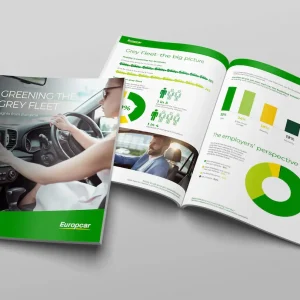Want to shrink your carbon footprint, slash fuel costs and even improve safety on your fleet? Getting staff to drive more efficiently could be the answer, as John Mahoney discovers
The pressure’s on. Businesses of the future must compete not only on cost grounds but on green issues too. Trouble is, going green can be expensive.
So what to do? How do you reduce your fleet’s carbon footprint while struggling with the exorbitant price of new planet-saving technology? Sure, you can go biofuel, the new industry darling fuel of choice that promises to slash well-to-wheel emissions, but there’s that sinking feeling at the back of your mind that you’ve been here before, and of course, you have. Wasn’t LPG a government darling fuel too?
How about hybrids, then? If it’s good enough for Hollywood. But wait, they’re too expensive and real world economy still favours diesel.
So what then? Sit back and do nothing? Not quite, because there’s a cheap, cost-effective solution staring you right in the face.
“It is frustrating,” says Mike Waters, head of market analysis at Arval. “People have been relatively slow in realising the direct link with carbon dioxide emissions and fuel consumption. They’re under the false impression that the CO2 they emit has nothing to do with them, that it’s down to the car they drive and that they can do nothing to impact that.
“They’re wrong – 100 litres of fuel burnt in a Fiat Cinquecento produces exactly the same amount of CO2 as 100 litres burnt rather more rapidly in a Ferrari. The only difference will be the Fiat will go further,” says Waters.
The message is simple: if your staff drive more efficiently and get more miles to the gallon from a tank, your CO2 emissions plummet, with a knock-on effect your business’ fuel bill shrinks. You can then get a pay rise and retire early to the Bahamas.
Selling the idea
Of course, urging drivers not to weld throttles to bulkhead is easier said then done, and revealing your premature retirement plans will probably see monthly fuel bills double. Instead, try a little tact. It’s called an incentive and if done correctly it’s a cheap way to bring huge savings – oh, and save the world in the process too. Maybe.
This is where thinking outside the cardboard cuboid counts, but before you rush into introducing a competition where the person with the best fuel economy wins a holiday to Barbados, consider the case of North Yorkshire’s John Rice Electrical Services. Martin Smith, the company’s fleet boss describes their operation: “We run a fleet of over 21 vehicles and spend £2000-3000 a month on fuel. We have decided not to introduce incentives to reduce fuel use. The reason for this, despite our not insubstantial spend, is a system of incentives is just not fair.
“Some of our lads are based in York and spend their days slowly crawling around the city all day. How can they compete against others who spend their days driving up and down motorways? Instead, we have concentrated on making sure our vans are used efficiently.”
In this example it’s quite clear why simply introducing a miles-per-gallon challenge would be an employer-employee disaster, as cash handouts disappeared to the motorway misers.





